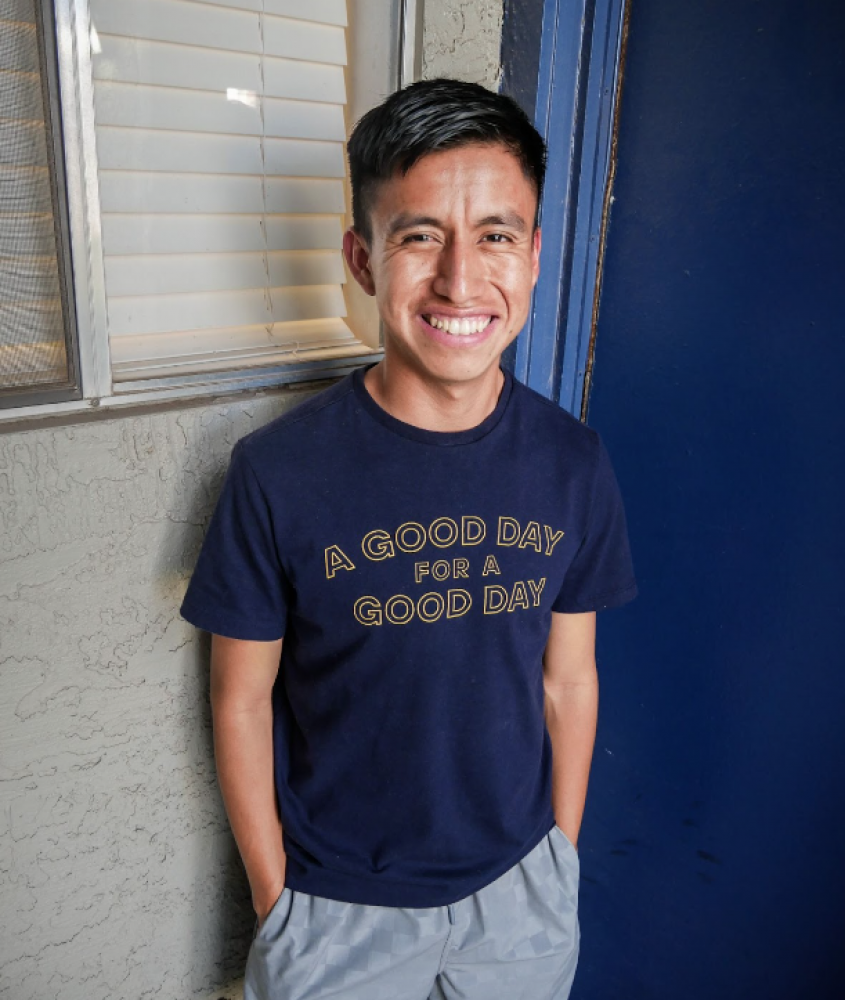I Came to America for a Better Life when I was 14

I came to America for a better life at the age of fourteen. My plan was to go from Guatemala to Mexico and then to Glendale, Arizona. My dad passed away when I was ten years old, so it’s just my mom and younger siblings at home. This was a big motivator for me to move to the United States, especially after watching my mom have to work really hard jobs to support the family.
When I first entered the United States, the Border Control did their best to make me feel welcomed. I was sent to a shelter with other young kids. When I arrived at the shelter I was eventually placed in a foster family.
My experience with my foster family was good because I had the privilege to go out and play soccer and go to school. I was with the family for six months; they were kind and loving and I felt happy with them.
My first impression of them was that our personalities aligned and they were very welcoming to me. They were asking me questions and I felt a part of their family. If I had a car then I would visit my foster family every week. Instead I call them most Sundays and text them a few times a week. When I’m free I also call my family in Guatemala. My family back home is very different in comparison to my foster family. I grew up on a beef farm and was the second oldest sibling.
My older sister lives in Florida, but I haven’t seen her for six years. I’ve been saving up money and am excited to see her soon.
One downside when coming to the U.S. was not being able to work right away. I came through Catholic Charities and they walked me through the steps of joining a foster family, along with getting a work permit. They also offered me support when I first moved here. Catholic Charities offered me a car to use when I needed to run errands, etc.
School was really hard for me. I felt like I wasn’t cut out for it and my teachers would tell me “this is simple stuff.” I just told myself that school wasn’t for me. On top of that, I didn’t know English so it was very challenging. I was able to find friends and some of my classes incorporated Spanish, which was helpful. However, when they spoke English I was very lost. I didn’t know what they were saying and I didn’t know how to do homework.
As a freshman I didn’t participate in any sports because I wasn’t doing well in my classes. Eventually I did cross country as my sport. Initially I didn’t know what cross country was because soccer was always my sport. Running in high school was really fun and I enjoyed it. At first though I wanted to quit because it was so painful. I went to my coach and he told me I should run in the mornings and just enjoy nature. Now I’m an ultra marathoner.
I started running because I wanted to have a goal and a challenge to accomplish. My friends were also running it so I followed along their training. The race was very difficult, but I persevered and was so happy when I finished.
However, the ultra marathon wasn’t the only hard thing I’ve had to endure. On my journey to America there were moments I wanted to quit, but things worked out. When I arrived at the shelter I was told I either had to go back to my country or stay in the shelter until I was eighteen.
Neither option sounded appealing, but then they found a foster family for me.
The one good thing that came out of the shelter was a good friend who now lives in Florida. We call and message over Facebook messenger to keep in touch. I call him a brother because I learned so much from him.
Currently, I live on my own and am taking some online classes and working. I’m grateful to finally have my work permit so I can help support my family back home. My goal is to go into accounting and maybe continue running marathons in the future. I’m waiting on my residency and then can apply for citizenship. Overall, from entering the country, to joining a foster family, to now being out on my own, everyone has been welcoming throughout my journey to America.
Our team members obtain informed consent from each individual before an interview takes place. Individuals dictate where their stories may be shared and what personal information they wish to keep private. In situations where the individual is at risk and/or wishes to remain anonymous, alias names are used and other identifying information is removed from interviews immediately after they are received by TSOS. We have also committed not to use refugee images or stories for fundraising purposes without explicit permission. Our top priority is to protect and honor the wishes of our interview subjects.